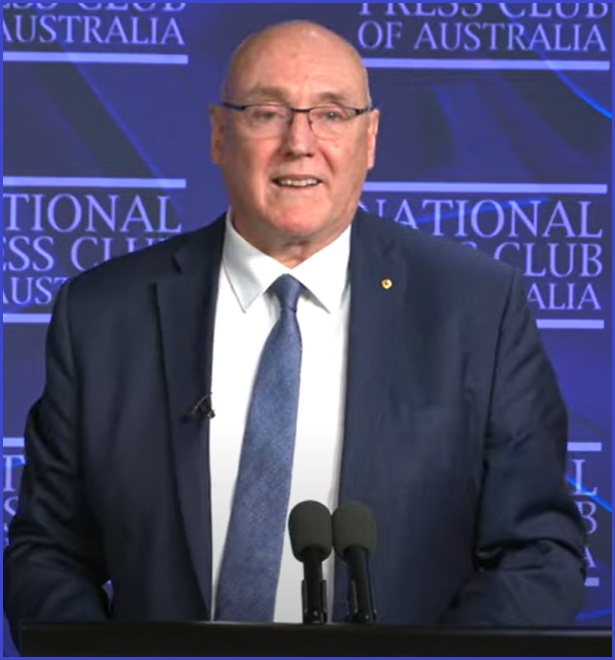Nine out of 10 new jobs created over the next decade will require tertiary-level education, with better alignment between universities and TAFEs needed urgently, according to Jobs and Skills Australia Commissioner, Professor Barney Glover.
Glover addressed the National Press Club on Wednesday afternoon, discussing the need for a more connected tertiary education system, the role of skilled migration in addressing Australia’s skills shortages, and Jobs and Skills Australia’s (JSA) focus on generative AI over the next year.
The Labor government has set a goal of 80 per cent of the working age Australian population having tertiary-level skills by 2050.
But in his address, Glover said that within the next decade, the proportion of new jobs needing tertiary education qualifications is set to increase from 70 to 90 per cent.
JSA has also projected that nearly 45 per cent of future jobs will require VET qualifications, while many will require both.
“That target may even prove to be an underestimate,” Glover said.
“We certainly need to better understand the spread and blend of skills and qualifications across the VET and higher education spectrum.”

Professor Barney Glover speaking at the National Press Club on 14 August 2024. Image: YouTube/ABC
Rebalance needed in education sector
Glover said there is an “urgent need” for a better-connected tertiary education system in Australia if the government is to achieve its goals around the Future Made in Australia plan.
“I’m concerned with the vital need for better alignment between our tertiary education sectors, in the interests of connection – I believe we need to rebalance Australian post-secondary education,” Glover said.
“To have a future made in Australia, inclusive of regional Australia, to be a clean energy superpower, to leverage AUKUS Pillar 2, to dramatically reshape our defence industries and to decarbonise our economy, we must rebalance.”
JSA also has an important role in advising the federal government on skilled migration, and how it relates to jobs in Australia that are in shortage, and the ever-growing skills gap.
Glover said that skilled migration is not the only answer to address these shortages.
“Our analysis suggests that skills shortages are often persistent – not just a reflection of a currently strong labour market, and many of the occupations we find to be in shortage are going to be in strong demand in the future, driven by the transition to net-zero, the growth in the care and support economy, and the rise of digital technologies,” Glover said.
“Uplifting all Australians to participate to their full potential in the labour market requires us to tackle these issues.
“We must do so from a sovereign risk perspective. Long-term recourse to skilled migration is not the only option.”
A focus on GenAI
Glover also revealed that JSA will be particularly focused on the impact of generative artificial intelligence (genAI) on the workforce over the next 12 months.
“There’s a huge amount of interest in understanding it,” Glover said.
“Generative AI cuts across the Jobs and Skills councils and we want to keep our work on gender and some of the gender challenges in the labour market.
“They’re the priorities for the big capacity studies over the next 12 months.”
JSA was first established by the Labor government in mid-2022 in an interim capacity, and was made permanent last year.
Glover, who at the time was vice-chancellor of Western Sydney University, was appointed JSA commissioner earlier this year.
The full architecture of JSA is now complete, with two deputy commissioners appointed this week.
New Minister for Skills and Training Andrew Giles announced that Australian Industry Group’s Centre for Education and Training executive director Megan Lilly and Electrical Trades Union national assistant secretary Trevor Gauld will serve in the roles.
“Both deputy commissioners will bring with them a wealth of experience from their field, having both contributed significantly to reform in the VET sector to benefit local businesses and Australian workers,” Giles said.
“The deputy commissioners will help drive JSA’s enhanced tripartite stakeholder engagement, involving the Commonwealth, state and territory governments, industry, employers, unions, and training providers.”










